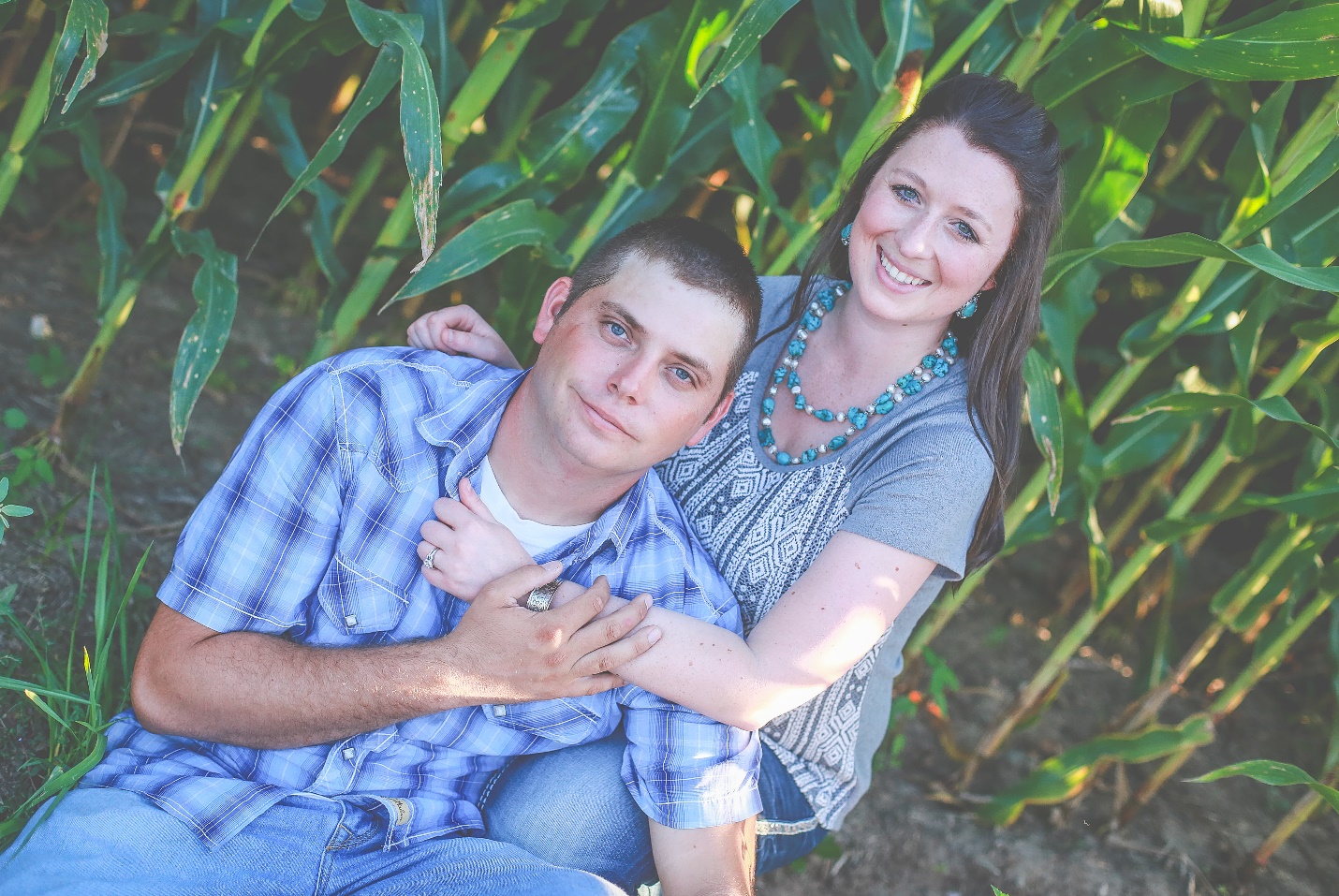 New NAFB member, Shanna Harris (KKOW, Pittsburg, KS) was born and raised in southeast Kansas. “I grew up on a farm where my dad had row crops and cows. Eventually, he sowed all the row-crop ground to grass and increased his cattle herd size.” Shanna emphasized, “I had a passion for agriculture early on. I loved being on the tractor or out in pastures with my dad.” To get her own start in farming, Shanna said, “I used dollar bills that I had saved from my great grandparents to buy my first bucket-calf at the age of 4 and that led to me growing my own herd. I was active in FFA in high school, and my cattle operation was my SAE project.” She went on to graduate from Oklahoma State University with a degree in animal science. “Numbers are something that come easy for me so I really loved ruminant nutrition. Right out of college, I moved back to southeast Kansas and worked for a local feed manufacturer and helped customers balance their rations.” She noted, “Promoting agriculture became more important to me as more backlash towards farms was put into the media. Educating the public about farming and where their food comes from is extremely important to me and that’s how I ended up in radio.” Shanna has a radio show that’s called Women of Ag that airs every day at 10:15 a.m. for two minutes. “We take a long form interview that I do with someone and break it into the segments. The topics I air are unlimited. Anything that pertains to local or current agricultural topics is fair game.”
New NAFB member, Shanna Harris (KKOW, Pittsburg, KS) was born and raised in southeast Kansas. “I grew up on a farm where my dad had row crops and cows. Eventually, he sowed all the row-crop ground to grass and increased his cattle herd size.” Shanna emphasized, “I had a passion for agriculture early on. I loved being on the tractor or out in pastures with my dad.” To get her own start in farming, Shanna said, “I used dollar bills that I had saved from my great grandparents to buy my first bucket-calf at the age of 4 and that led to me growing my own herd. I was active in FFA in high school, and my cattle operation was my SAE project.” She went on to graduate from Oklahoma State University with a degree in animal science. “Numbers are something that come easy for me so I really loved ruminant nutrition. Right out of college, I moved back to southeast Kansas and worked for a local feed manufacturer and helped customers balance their rations.” She noted, “Promoting agriculture became more important to me as more backlash towards farms was put into the media. Educating the public about farming and where their food comes from is extremely important to me and that’s how I ended up in radio.” Shanna has a radio show that’s called Women of Ag that airs every day at 10:15 a.m. for two minutes. “We take a long form interview that I do with someone and break it into the segments. The topics I air are unlimited. Anything that pertains to local or current agricultural topics is fair game.”
About her farm she said, “Today, my cattle herd is still growing. I primarily raise SimAngus but lean towards more Simmental and am always expanding my genetics. My husband, Wyatt, farms and sells seed, and I keep his books and help him wherever needed (such as driving a grain cart, moving equipment around to fields, going after parts, etc.). We are both involved with Farm Bureau. My husband is on the board for the neighboring county he has land in, and I’m on the board of the county we live in. I strive to be as involved as I possibly can in agriculture, and working at the radio station has allowed that to be even more possible.”
